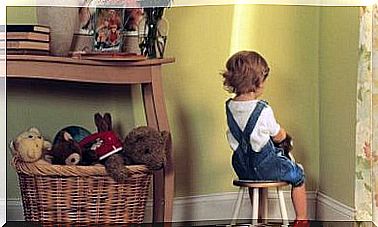How Babies Develop Their Language Skills

Developing language skills is something that all parents do, even though they may not be aware of it. As long as your child has the necessary skills to acquire language, this process will happen on its own, gradually but effectively.
But if you know how, you can contribute to your baby’s language skills with good results.
Language proficiency can be described as follows: Human language is a process. It originates from thought and assigns linguistic qualities to the information received through the senses.
As a result, most individuals are fully equipped from birth to acquire their mother tongue. Although language involves different aspects, it is generally through speech that people communicate.
Learning to communicate using a common language with those around us is a challenge we face in the first few years of life. However, the development of speech is a process that takes years that lasts until puberty.
In that sense, we first pick up the basic elements of the linguistic system. It is only later that we move on to questions of meaning and to pragmatics.

Elements of language proficiency
The process can be divided into three basic elements: form, content and application.
Once parents are able to recognize the stage of language proficiency their child is at, they can participate more consciously in this process.
Form:
This is one of the most difficult elements to identify because it is completely abstract. We do know, however, that it develops in the period from birth up to five or six years.
If your child is in the process of internalizing the language form, experts recommend helping them recognize some basic grammatical contexts, sounds, syllables, and words.
Contents:
This concept indicates that the child has developed beyond learning sound and phonical contexts.
Reaching this point means that the child or pre-teen knows most of the lexical content they encounter. That is, they know the meaning of most of the words they see or hear.

Application:
This element may take longer to develop. Establishing an appropriate use of lexical systems requires advanced semantic knowledge. With the acquisition of pragmatics, the child is ready to understand indirect language forms, such as irony, humor or double entender.
This also allows the child to assess whether each expression is appropriate and adapts their language to the situation.
How can we contribute to language proficiency?
Although we have explained them separately, the form, content and application of each step overlap. To help with the development of these phases, it is not a good idea to skip anything or move too fast.
However, you should not omit information that may be useful for the child to take in as their cognitive abilities are developing.

Development of language skills
- Talk to your baby all the time. Your communication with your baby should develop over the years.
- Use an appropriate voice: Not too loud or too quiet, cheerful and expressive, with shouts and questions.
- Incorporate movement and make sure your child sees it. This way, they start picking up the terms you use, as well as your speech. Pay attention to the movements of your mouth, making sounds easier to repeat.
- When your baby makes their first sounds, it is important to respond, repeat and engage in small conversations with them.
- Reading a story is a great way to make the little ones aware of the language forms and prepare them for the content.
- Even if you have not heard your child say words yet, they understand what they are hearing, especially when you use simple expressions. Now is the time to give them messages and teach them vocabulary.
- It is never a bad idea to explain things that the child sees around them. When you see something of interest to your surroundings, pass the information on to them.
- In relation to our surroundings, listening and responding helps to improve the quality of our speech. Make corrections tactfully. All of these are instant tools for developing language skills.









